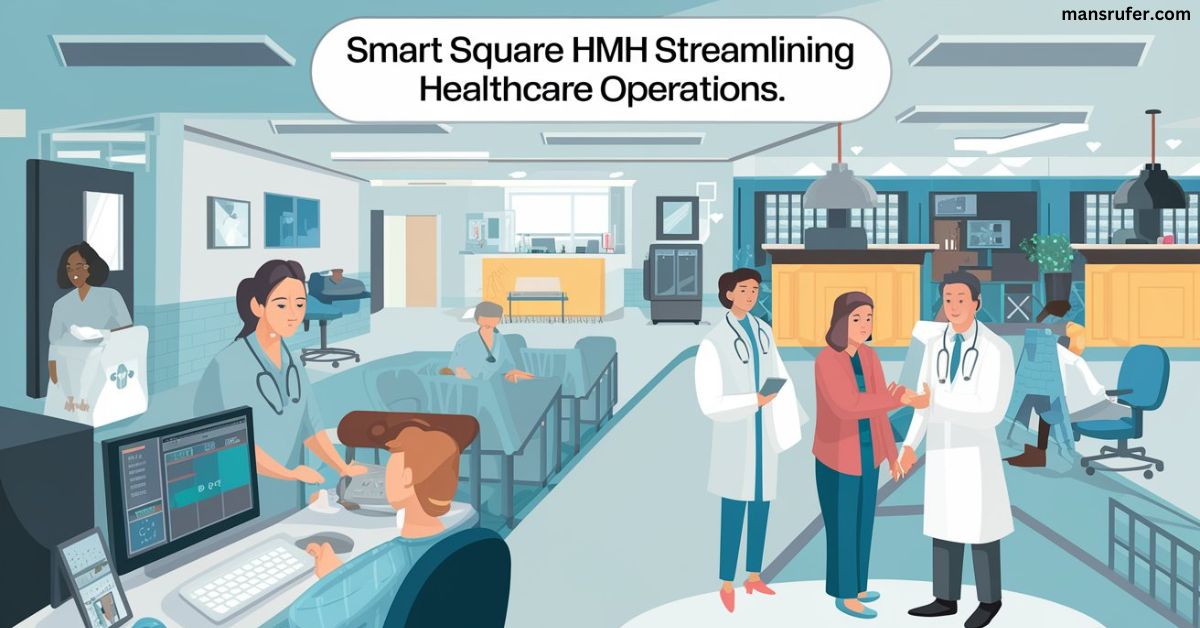Smart Square HMH is a cutting-edge workforce management platform designed to meet the specific needs of healthcare organizations. With increasing demands for more efficient operations and optimized scheduling, this solution addresses the unique challenges faced by healthcare providers. From improving staff scheduling to enhancing patient care, Smart Square HMH enables healthcare organizations to effectively manage their workforce. This article delves into the platform’s features, benefits, and how it can revolutionize healthcare management.
What is Smart Square HMH?
Smart Square HMH is a web-based scheduling and staffing solution tailored to healthcare institutions. Developed by Avantas, the platform integrates forecasting, scheduling, and staffing tools to streamline workforce management. It is particularly suited for large healthcare networks such as Hackensack Meridian Health (HMH), allowing administrators to optimize staff schedules, reduce labor costs, and ensure high-quality patient care.
Key Features of Smart Square HMH
1. Advanced Scheduling Tools
Smart Square HMH offers advanced scheduling capabilities, allowing healthcare managers to efficiently create, adjust, and publish schedules. Using predictive analytics, the platform forecasts staffing needs, ensuring the right number of staff is available at all times. This reduces overstaffing and understaffing, leading to enhanced patient care and greater employee satisfaction.
2. Real-Time Analytics
The platform provides real-time insights into staffing levels, shift patterns, and patient needs. These data-driven analytics enable managers to make informed decisions quickly. Real-time data allows for immediate adjustments, ensuring every department is adequately staffed.
3. User-Friendly Interface
Smart Square HMH features a user-friendly interface that simplifies the scheduling process. Its intuitive design enables managers to easily navigate schedules, approve requests, and manage shift changes. The platform also offers a mobile-friendly version, allowing staff to access schedules on the go, promoting better communication and flexibility.
4. Automated Shift Management
One of the platform’s standout features is automated shift management. It automatically assigns shifts based on employee availability, skill set, and department requirements, reducing manual errors and administrative workload.
5. Employee Self-Service Portal
The self-service portal allows staff to view schedules, request time off, swap shifts, and receive notifications. This feature empowers employees, reduces scheduling conflicts, and enhances job satisfaction.
6. Compliance and Reporting
Smart Square HMH ensures compliance with healthcare regulations and labor laws. The platform generates detailed reports on hours worked, overtime, and staffing ratios, helping organizations stay compliant with legal requirements.
Benefits of Using Smart Square HMH
1. Enhanced Workforce Efficiency
By providing accurate staffing forecasts and streamlining scheduling, Smart Square HMH improves workforce efficiency. This results in a more balanced workload, reducing staff burnout and boosting morale.
2. Improved Patient Care
Optimizing staffing levels ensures that healthcare organizations can meet patient needs promptly, leading to shorter wait times, better service, and increased patient satisfaction.
3. Cost Savings
By reducing labor costs through better staffing optimization, Smart Square HMH helps healthcare organizations cut down on expensive overtime and temporary staffing, leading to significant savings over time.
4. Higher Employee Satisfaction
The self-service features offer staff flexibility and control over their schedules, enhancing work-life balance and overall job satisfaction. This leads to higher retention rates and a more engaged workforce.
5. Data-Driven Decision Making
The platform provides valuable data that aids in decision-making. Managers can analyze trends, assess performance metrics, and make adjustments to improve operational efficiency, benefiting both staff and patients.
How to Implement Smart Square HMH
1. Evaluate Current Scheduling Practices
Before implementing Smart Square HMH, assess your current scheduling system to identify areas for improvement. Understanding your organization’s needs will help you customize the platform to deliver the best results.
2. Train Your Staff
Proper training is essential for successful implementation. Ensure that both managers and staff receive comprehensive training to familiarize them with the platform, ensuring a smooth transition and minimizing resistance to change.
3. Integrate with Existing Systems
Smart Square HMH can integrate with your HR and payroll systems, streamlining operations even further. Proper integration is key to maximizing the platform’s potential.
4. Monitor and Optimize
Regularly monitor the system’s performance and gather staff feedback to identify areas for improvement. Use the platform’s analytics to continuously optimize scheduling practices.
Challenges in Using Smart Square HMH
1. Learning Curve
Despite its user-friendly design, there is an initial learning curve. To address this, invest in thorough training programs and provide ongoing support for staff.
2. System Integration Challenges
Integrating Smart Square HMH with existing software systems can sometimes be challenging. Close collaboration with IT teams and Smart Square support can help mitigate these issues and ensure smooth integration.
3. Data Security Concerns
As healthcare organizations handle sensitive data, security is a top priority. While Smart Square HMH offers robust security features, it’s important to regularly update security protocols and train staff on best practices for data privacy.
The Future of Smart Square HMH in Healthcare
The future of Smart Square HMH looks bright, with healthcare organizations increasingly seeking efficient workforce management solutions. With advancements in artificial intelligence and machine learning, the platform is expected to evolve, offering even more predictive capabilities and personalized solutions. As the healthcare industry faces new challenges, tools like Smart Square HMH will play a vital role in shaping the future of workforce management.
Conclusion
Smart Square HMH is a powerful tool for healthcare organizations seeking to optimize workforce management. By improving scheduling, enhancing communication, and providing actionable data insights, this platform helps organizations deliver better patient care and boost employee satisfaction. For healthcare providers looking to streamline operations and reduce costs, Smart Square HMH is a comprehensive and effective solution.




